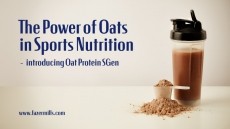Science building for chitosan weight management benefits
reported that dietary supplements of chitosan cut weight gain and
cholesterol levels in rats, research that enhances the limited
research already performed with the ingredient.
Writing in the journal Clinical and Experimental Pharmacology and Physiology lead author Dr. Shahdat Hossain from Jahangirnagar University reports that supplementation with chitosan, derived from the exoskeleton of shrimp, reduced With 50 per cent of Europeans and 62 per cent of Americans classed as overweight, the food industry is waking up to the potential of products for weight loss and management, with the category already estimated to already be worth $7bn worldwide. At the First International Conference on Innovations and Trends in Weight Loss and Weight Management held in Berlin last week, Dr. Jorg Gruenwald from Berlin-based Analyze & Realize reviewed the European market of slimming ingredients and stated that the science supporting chitosan's benefits was limited. Indeed, a review published in the Cochrane Library assessed the results of 14 randomized controlled trials on chitosan supplements and found that people taking the supplement had an average weight loss of almost four pounds more than those on placebo in the short term. Despite concluding that the supplement-takers saw their cholesterol and blood pressure levels decrease more than those in the placebo group, lead author Cliona Ni Mhurchu from the University of Auckland in New Zealand reported that many of the trials reviewed were limited by poor methodology and reporting. The authors did not use a commercial preparation but extracted the chitosan themselves from locally sourced shrimps using sequential decalcification, deproteination, deacetylation and the acid-extraction of chitin. Hossain and co-workers randomly assigned 25 young female Long Evans rats into one of five groups. Two groups were fed a diet containing normal cholesterol levels and supplemented with zero or two per cent chitosan, and three groups were fed a diet containing high cholesterol levels and supplemented with one, two or four per cent chitosan for eight weeks. At the end of the study the researchers report that two per cent chitosan supplementation for the rats consuming a diet with normal cholesterol levels led to a 16 per cent decrease in total cholesterol levels, with plasma LDL-cholesterol levels tending to decrease but no significant changes in HDL-cholesterol levels. Cholesterol levels in rats fed the high cholesterol diet were significantly higher than the normal cholesterol diet-consuming groups, indicating that hypercholesterolaemia (elevated cholesterol levels) had been achieved. Supplementation with two and per cent chitosan led to a 20 and 24 per cent decrease in total cholesterol levels, compared to one per cent chitosan, for rats consuming a diet with high cholesterol levels. A significant (30 per cent) increase in HDL-cholesterol levels and a 58 per cent decrease in LDL-cholesterol levels was observed for the four per cent chitosan group, compared to the one per cent high cholesterol rats. "The results of the present study indicate that the feeding of CS to normo- and hypercholesterolaemic rats significantly ameliorates the atherogenic lipid profiles in both, with a comparatively greater effect in the latter," reported the researchers. Greater consumption of chitosan was associated with reduced weight gain, with the chitosan supplemented normal cholesterol rats gaining 23 grams less than the unsupplemented rats, and the four per cent chitosan supplemented high cholesterol rats gaining 30 grams less than the one per cent supplemented high cholesterol rats. "The findings of the effects of CS feeding on bodyweight gain are of special significance," they said. The researchers called for more research to further investigate the effects observed, and whether such benefits are also translated into humans. "Adequate anti-oxidants should be added to chitosan-enriched supplements in order to minimize the degree of oxidative stress to the liver. Further studies are certainly needed to clarify these aspects of chitosan," cautioned Dr Hossian. Source: Clinical and Experimental Pharmacology and Physiology (Wiley-Blackwell) March 2007, Volume 34, Issue 3, Pages 170-176 "Effects of shrimp (Macrobracium rosenbergii)-derived chitosan on plasma lipid profile and liver lipid peroxide levels in normo- and hypercholesterolaemic rats" Authors: S. Hossain, A. Rahman, Y. Kabir, A.A. Shams, F. Afros, M. Hashimoto











